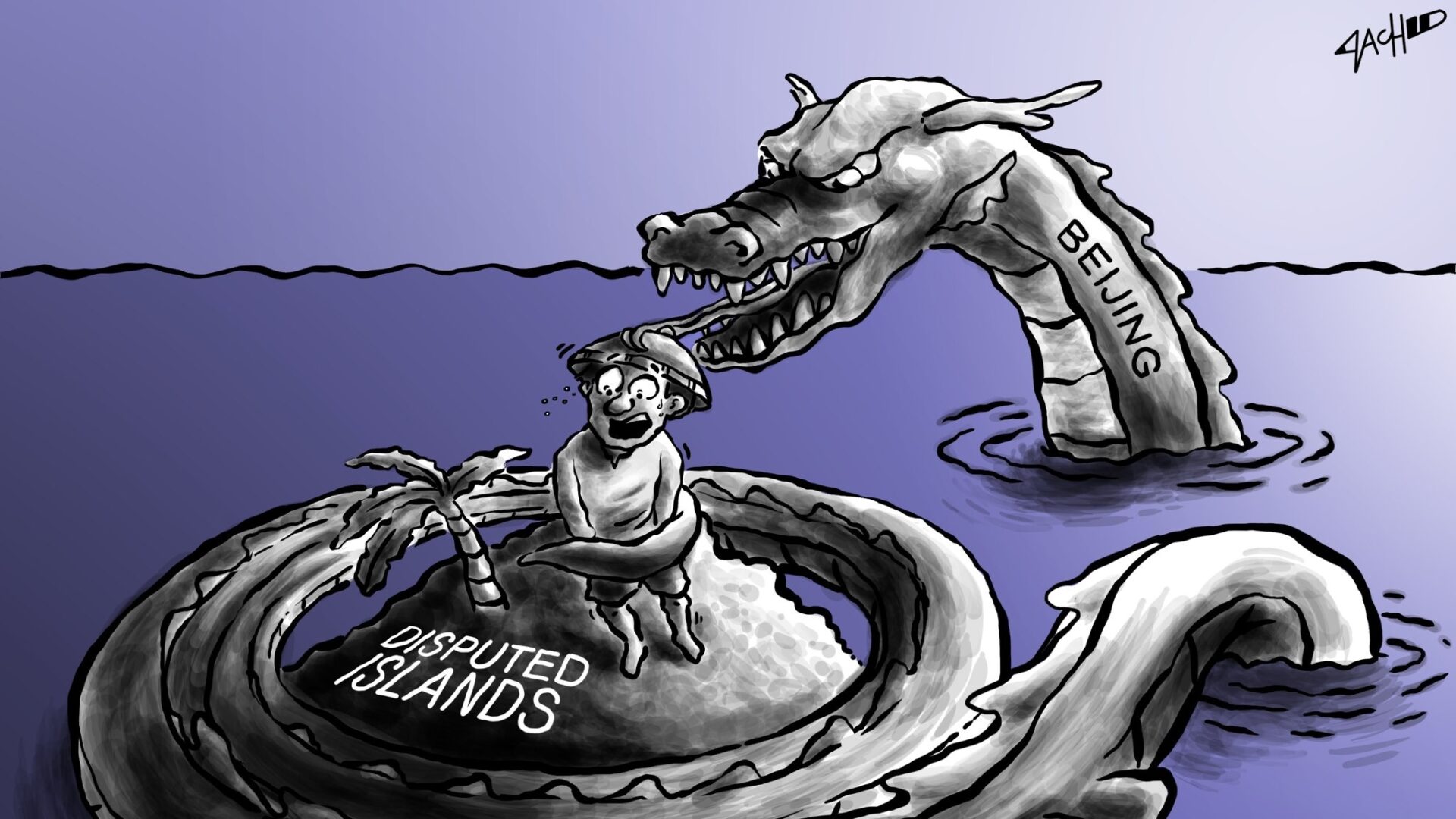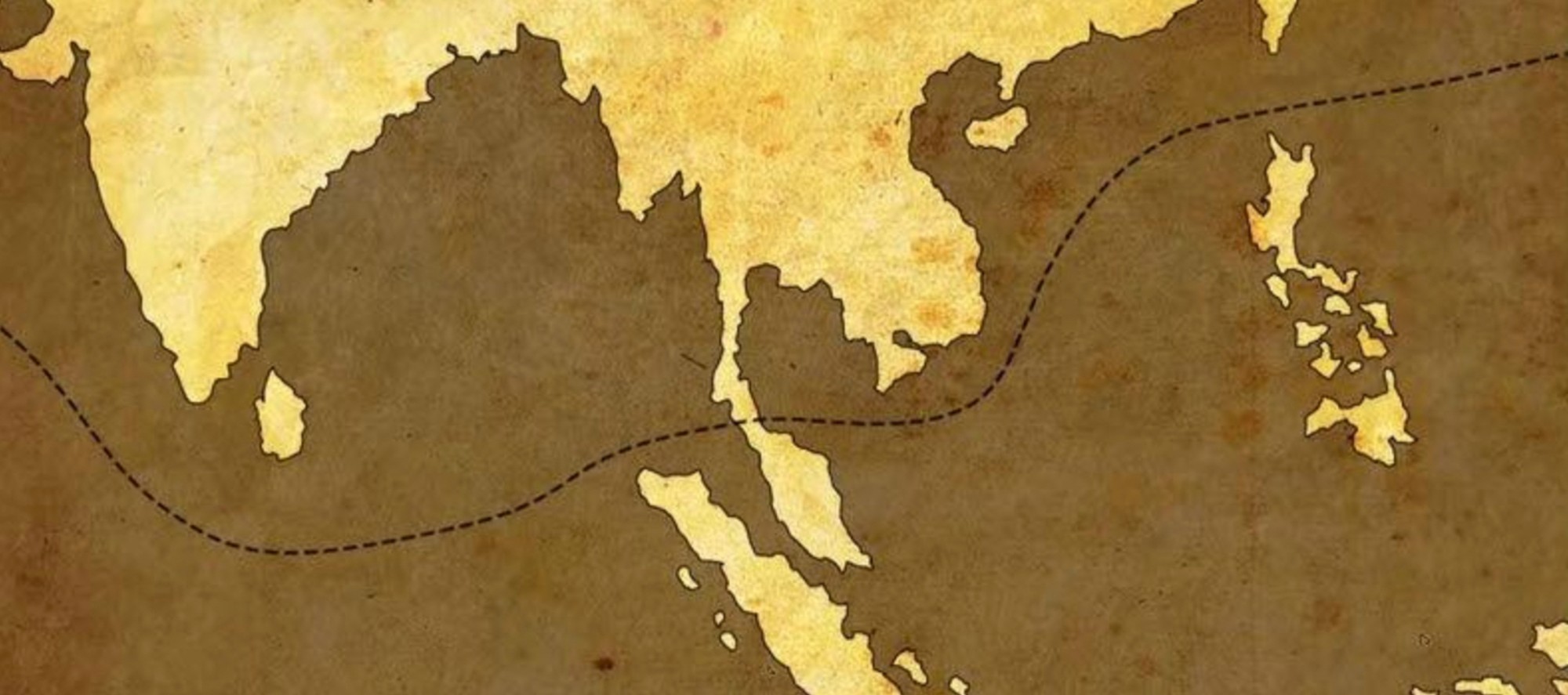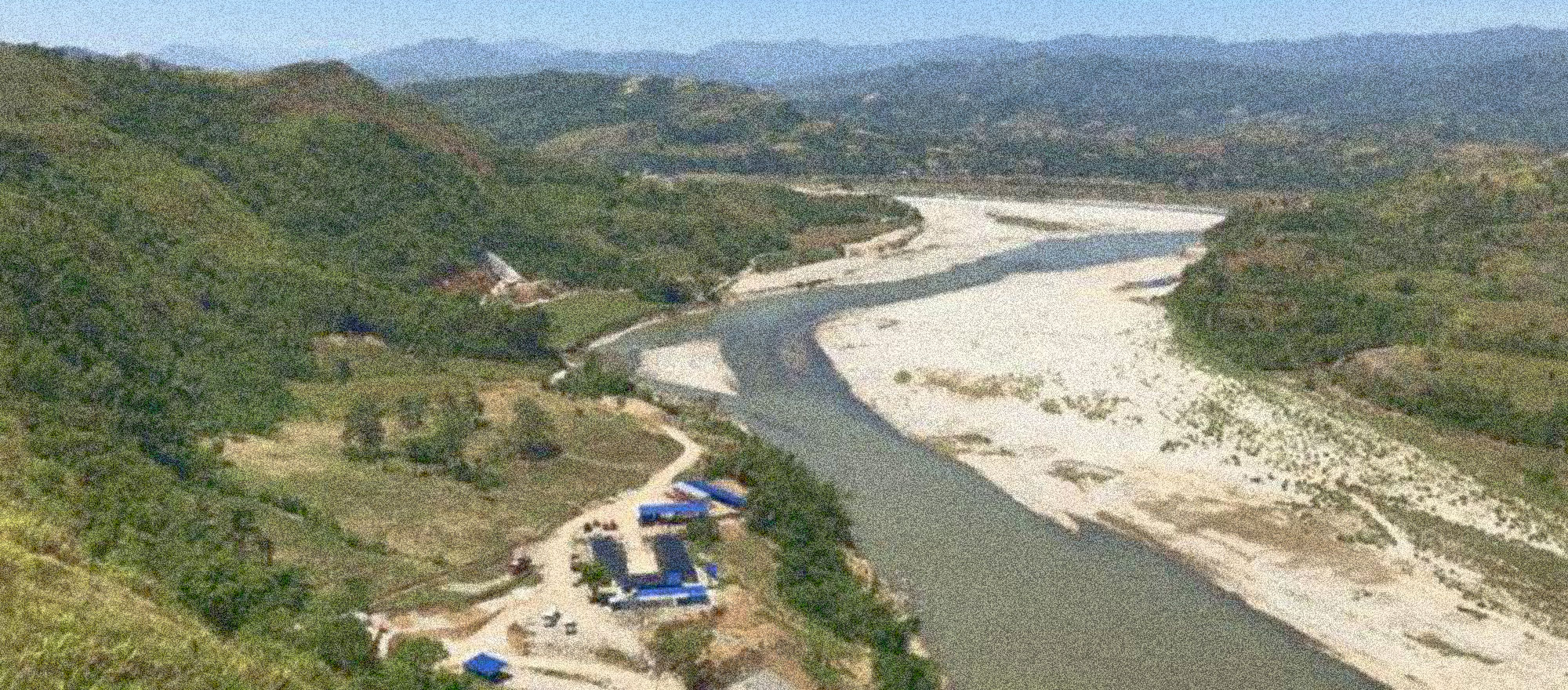Defending West Philippine Sea, a matter of life and death
Filipino fisherfolk are already in crisis, suffering from government neglect and policies related to mining, taxation, penalties, high prices, and being deprived of basic social services. The dispute in West Philippine Sea now puts them in a matter of life-and-death situation.


The already deplorable condition of Filipino fisherfolk along coastal areas in Central Luzon has worsened due to the current West Philippine Sea (South China Sea) dispute between the Philippines and China. By all accounts, Filipino fishermen and their families are now in a life and death situation.
This is how the National Fact-Finding and Solidarity Mission (NFFSM), lead by Pambansang Lakas ng Kilusang Mamamalakaya sa Pilipinas (Pamalakaya Pilipinas), Bagong Alyansang Makabayan-Central Luzon, Move Now Zambales, Anakpawis Part-list, Alyansa ng Magbubukid sa Gitnang Luzon, Center for Environmental Concerns, and Pilipinong Nagkakaisa para sa Soberanya (P1nas), on September 18 to 20 along coastal areas in Zambales, discovered.
“The Filipino fisherfolk are already in crisis — suffering from neglect of the government and policies related to mining, taxation, penalties, high prices, and being deprived of basic social services. The dispute in West Philippine Sea put them in a matter of life and death situation,” said Liza Maza, P1nas convener.
Affecting lives
In an incident on April this year, a group of fishermen were harassed and chased by the Chinese while trying to fish in Panatag Shoal destroying some of their fishing vessels.
Since then, most Filipino fishermen are afraid to get near the area. There has been no response from the Philippine government on the said attack.

“(But) there are fishermen who brave the present danger within disputed territories with their primitive fishing vessels just to feed their families. Panatag Shoal and other disputed areas in West Philippine Sea must be re-claimed by the Philippine government for our people especially our poor fisherfolk,” said Anakpawis Rep. Fernando Hicap, who is also Pamalakaya national chairperson.
According to data gathered by the mission, many fisherfolk along the coastline of Zambales lost their livelihood and were unable to fish because they were continually harassed by Chinese coast guards in Bajo de Masinloc (Panatag Shoal).
The NFFSM said that about 80 percent of the fisherfolk’s previous production was lost due to China’s incursions. Some fishermen were forcedto look for other sources of income, although others remained in fishing for lack of other options.
“Some fishermen used to earn as much as P3,500 a day before they were driven away from Bajo de Masinloc. Now, they earn as low as P300 to 100 a day,” said Hicap.
The local government of Zambales tried to address the crisis made by the Chinese incursion. According to Zambales Gov. Hermogenes Ebdane, they tried to provide fishing equipment, as well as food, to those who were affected.

But not all fisherfolk were lucky to receive help from the local government. Those who received some said the help was only short-lived, and did not make up for what they used to earn from fishing.
According to residents, not only Zambales fishermen have been affected by the Chinese incursions. Many fisherfolk coming from Pangasinan, Cavite, and Batangas have also been affected.
In crisis
Even before the dispute in West Philippine Sea intensified, the Philippine fishing industry has already been in crisis.
According to former senator Leticia Ramos-Shahani, convener of P1nas and a member of the fact finding mission, “We should never forget that we are archipelago of 7,000 islands united by the waters of the Eastern Pacific and West Philippine Seas, with one of the longest coastlines in the world to defend and secure. Aside from defending what truly belongs to the Philippines, our government must preserve and sustain our vast marine resources and modernize the backward technology of our fishing industry.”
Fisherfolk also suffer from the effects of mining, particularly in Santa Cruz town where the sea literally turns into red due to mining waste during the rainy season. An estimated 5,000 fishermen have been affected and residents have suffered from skin diseases.
Dynamite fishing is also being practiced in the said town, damaging corals, affecting their livelihood.
Meanwhile, fishermen in Masinloc town complained of the excessive taxes that the local government collects on them. Among others, they are required to register their fishing vessels to the local government and pay a tax for it. They have been forbidden to fish 15 kilometers away from their municipality.
“It really is a burden, especially now that we can’t even have a good catch. We don’t earn like we used to since we can no longer get near Bajo de Masinloc,” said Jeffrey Ilad, 34, a resident from Brgy. San Salvador, Masinloc.

Citing data from National Statistics Coordinating Board, Pamalakaya said 39.3 of poor Filipinos are from the fisherfolk sector, despite the country’s abundant aquatic resources. Because of this crisis, the fisherfolk are pushed to look for other sources of livelihood.
Shahani said that there will be no future in the fishing industry unless the government does something to raise their condition. Among others, the government has to make the Filipino fisherfolk more competitive through education and improved technology, she added.
According to Shahani, the Philippine territory comprise of 4/5 water and 1/5 land. Despite of backward fishing methods, the Philippines is one of leading fish producers in the world.
“Our future lies in how we secure and sustain our marine resources. But it is evident that we are not taking care of our fisherfolk…We have to educate our future fishermen and women if we are to develop our God-given marine resources,” said Shahani.
Also, the fisherfolk blame commercial fishing as part of their dilemma. They say that commercial fishing vessels have more advanced fishing technology and they were left with almost no fish to catch.
“I still remember when I was a boy. My grandfather and I used to go fishing and we don’t need to go farther from the seashore. There are plenty of fish. But now, we go kilometers away but our catch are frustrating,” said Ariel Ebue, 51, from Masinloc.
Independent foreign policy
The Chinese incursions in West Philippine Sea already have serious implications to the lives of the fisherfolk.
For P1nas, a newly formed broad citizen’s movement that aims to unite Filipino people in defense of the country’s sovereignty and territorial integrity, the key to resolving the dispute is for the Philippine government to have an independent foreign policy.
The government must not allow United States to meddle with the issue as the latter has its own interest in the disputed sea in particular and in the country in general, the group added.

“Allowing US intervention (in West Philippine Sea dispute) would mean allowing American interests and not (that of) the Philippines. We have a history and current experiences to prove this. We are against what China is doing in West Philippine Sea and at the same time we are against the US forces that are already in our soil for a long time, disrespecting our sovereignty and literally killing our people,” said Maza.
According to P1nas, there is no way Americans will engage in a war with China on disputed territories in the West Philippine Sea.
“The language of diplomacy is power. It is not goodwill. It is not friendship. It is sheer military and economic power which we don’t have. But I have faith in the friendship with Chinese people. There are many ways of diplomacy not only the formal one,” said Shahani.
What is happening to West Philippine Sea is a wake-up call to Filipinos to be serious in defending our country. Filipinos must unite and must know the implications when a foreign alien power comes to threaten our very livelihood and sovereignty, she added.
“With China’s air force in Palawan, Mischief Reef is (virtually) under their control. In Scarborough Shoal, nobody can enter. What does that mean? We are no longer masters of our own country. It is about time that we Filipinos must wake up to really defend our country,” said Shahani.
People united
The dispute in West Philippine Sea may be far from over. But the fisherfolk, residents, and local government units in Zambales said they will not sit idly by and wait for the national government to do its job.
According to Maza and Shahani, the local government units in Zambales, particularly the Municipality of Masinloc, have responded positively in support of the cause to defend West Philippine Sea.
Even in the grassroots level, the fisherfolk and residents from affected communities have organized themselves to address problems brought about by the dispute in West Philippine Sea and other issues.
“We are delighted that more and more people are organizing themselves along the coastline to defend their right to livelihood, right to live, and right to survive. This mission reveals how people are affected by this incursion and at the same time (the situation) exposes the (national) government’s lack of support for its people. The government must do more than complaints in international court but must make a political will to protect its land and people,” said Hicap.
The NFFSM organizers said they plan to submit the mission’s findings and recommendations to the President, as well as to all agencies concerned including the Department of Foreign Affairs, the local government units of Zambales, and to international agencies. They will also continue the campaign to raise awareness on the issues to many other fisherfolk and poor communities in the country.



